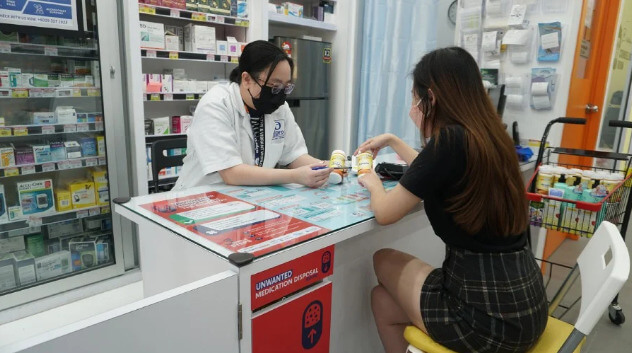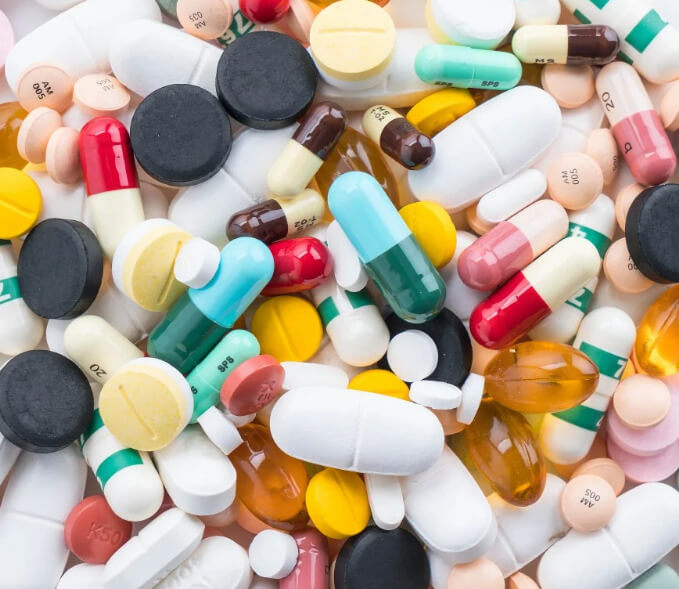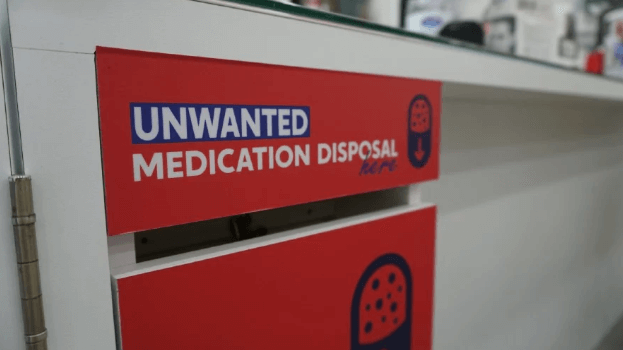Think before you throw
GIVEN the pandemic, most of us probably have a "mini pharmacy" at home, stocked with a variety of flu, fever and cough medicines. Some may also have medications to treat high blood pressure or diabetes or painkillers.
But do we give a thought to how we dispose of these medicines once they've expired or are no longer needed?
It's safe to say that many would just throw these medicines into the dustbin and bundle them up with their regular garbage, but such actions have implications.
Safe disposal of medicines refers to the method of properly disposing of unwanted/unused/expired/spoiled medicines without causing much harm to the environment and the ecosystem.
Currently, there is only one recommended way to dispose of medicines, which is through incineration. Only authorised medical waste management agencies can carry out this process.
Alpro Pharmacy pharmacist and director of branding and trade marketing Lee Yin Chen says generally, all types of medicines can be disposed of through incineration. Landfill dumping is not recommended.
According to a recent study conducted by Alpro Pharmacy, in collaboration with International Medical University and Monash University, 83.2 per cent of respondents said they were aware that improper handling of unused medicines had a negative impact on the environment and the ecosystem.
However, 66.4 per cent of respondents also replied that they have not received any form of education or awareness on the proper methods of medication disposal.
"One of the negative effects of improper medication disposal is the introduction of antibiotic-resistant bacteria. This can even give rise to the superbug, or multidrug-resistant bacteria," says Lee.
Antibiotic resistance happens when germs like bacteria and fungi develop the ability to defeat the drugs designed to kill them and this influences the agricultural sector and human consumption.

Lee says one of the negative effects of improper medication disposal is the introduction of antibiotic resistance bacteria.
DEEP CONSEQUENCES
Other medications such as hormone-containing pills and antidepressants have a significant impact on marine life — causing negative effects, including behavioural changes, changes in gender characteristics and influencing the gender of the offspring.
Improper disposal of medication will also pollute underground water and the source of our drinking water.
Lee says Malaysians throw away all sorts of medicines and the more popular the medication, the more likely it is to be improperly disposed of.
According to the study initiated by Alpro, 58.9 per cent of respondents throw their unwanted medicines into the rubbish bin.
"This is serious. While there are no studies conducted locally on the adverse impacts of improper medication disposal, countless research papers and studies in other countries have shown the negative effects and it should serve as a warning to us," Lee says.
He adds that healthcare professionals, especially pharmacists, should play a bigger role in advocating this to the public. The Health Ministry and Education Ministry should also work hand in hand to provide correct information to the public, starting with schoolchildren.
He says the government, non-governmental organisations and public and private sectors should pay more attention to this issue before it is too late.
In most countries, pharmacies and pharmacists play important roles in advocating proper medication disposal practices to the public.
In Sweden, for example, the government fully funds medication disposal programmes through pharmacies, whereas in France, pharmaceutical companies step forward to fund medication disposal programmes.

Healthcare professionals especially pharmacists can play a bigger role in creating awareness about safe disposal of medicines.
HOW WE THROW MEDICINES
KEY findings of the pilot survey conducted by Alpro Pharmacy in partnership with International Medical University and Monash University:
• 66.4 per cent of respondents have not yet received information on proper practice of medication disposal.
• 58.92 per cent have thrown their medication in rubbish bins.
• 63.5 per cent believe that community pharmacies are a convenient place to dispose of leftover/expired medication.
• 83.2 per cent are aware that improper drug disposal harms the environment and ecosystem.
• 78 per cent find it acceptable to return or dispose of unused medicines to their local pharmacy or medical facility.

Use the right methods to dispose of unwanted medicines. Picture: Created by topntp26 - www.freepik.com
THE IMPACT
• More than 10,000km of rivers around the world have concentrations of diclofenac above the European Union's "watch list" limit of 100 nanograms a litre.
• Between 70 and 80 per cent of all antibiotics consumed by humans and farm animals — thousands of tonnes — find their way into natural environments.
• In Germany, up to 16,000 tonnes of pharmaceuticals are disposed of annually from human medical care, with 60 to 80 per cent of these drugs flushed down the toilet or placed in normal household waste.
SAFE DISPOSAL
• Do not pour into sink, toilet or into garbage.
• Set a specific time, once every month or every two months, to check your stock of existing medications for expiration dates, condition and the amount left.
• Do not keep unused medications at home as this can lead to accidental poisoning of children, persons with dementia or those with visual impairment and pets.
• Do not share unused medications with other people without a doctor's instruction.
• Bring medications which are expired, spoiled, or not required anymore to the nearest pharmacy or healthcare facility that is willing to accept them for safe disposal.
Source: "Guidelines On The Proper Disposal Of Unused Medications" — www.um.edu.my

Look for medicine disposal services at pharmacies or health facilities.
Read original article: New Straits Times

